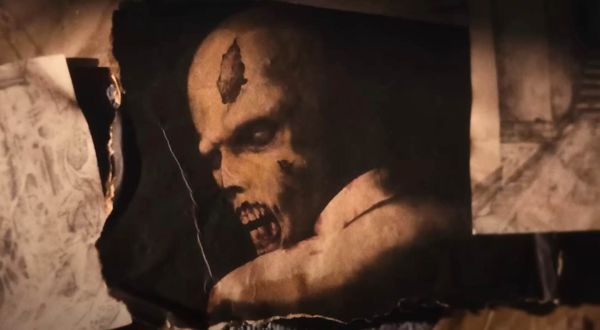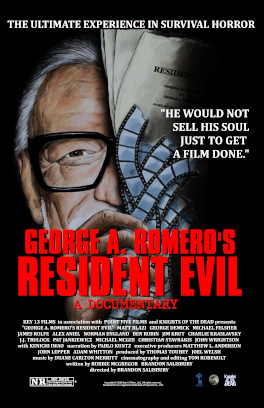Eye For Film >> Movies >> George A. Romero’s Resident Evil (2025) Film Review
George A. Romero’s Resident Evil
Reviewed by: Jennie Kermode

With seven entries to date, the Resident Evil film series has been a huge popular hit, attracting loyal fans all around the world. Four of the films, including the first one, were directed by Paul W Anderson, who also wrote the first six. What many fans will not realise, however, is that they came tantalisingly close to being directed by the creator of the modern zombie film, George Romero.
Directed by longstanding fan Brandon Salisbury, this documentary takes on the story of what might have been. It uses archive material and new interviews with people close to the project to explore what happened, what Romero created along the way and why, in the end, it all fell apart.
There is an obvious comparison with Jodorowsky’s Dune, but Salisbury doesn’t have the experience of Frank Pavich and it shows. For starters, nobody seems to have proofread the script. There are some clumsy lines, and others that don’t mean what the write apparently thought they meant. There are odd omissions. A précis of Romero’s early, Pittsburgh-based films is followed by discussion of social commentary in his work, including a focus on the Black lead in Night Of The Living Dead, despite Romero having said that it was accidental. It’s also quite heavy handed in labelling what each film was ‘about’.
The central story isn’t really substantial enough for a whole film, so it has been padded out with some quite generic material about Romero and about the history of the game behind the films, which will be fine for newcomers to the subject but a bit frustrating for others. When it does get to the point, however, it’s fascinating. Salisbury knows his central subject well. We see some of an advert Romero made which functioned as a proof of concept short, and learn what he planned to do with the story. There are disturbing elements to the narrative and one can see why they made Constantin Film uncomfortable. The line we are given is that they wanted action and he wanted horror, but it could as easily be summed up as they wanted a blockbuster and he wanted art.
Romero gets to speak for himself by way of quotes from his 2001 interview with Fangoria, and we also hear various people’s accounts of his attitude at the time, including his fear that he was repeating himself (perhaps hard to avoid given that Biohazard was inspired by his work). Some of his ideas sound really cool and one wonders what they, in turn, might have brought to the gaming experience, if only by way of making new players feel a lot more nervous. Salisbury has the sense not to overextend himself in talking about the project’s failure, aspects of which will always remain a mystery. As participants reflect on Romero’s passing, there is a deeper sense of what the death of an artist means, of the closing down of possibilities.
This documentary might not be everything one might have hoped for, but it makes a decent stab at an interesting subject, and for many fans, it will be unmissable.
Reviewed on: 11 Jan 2025
















